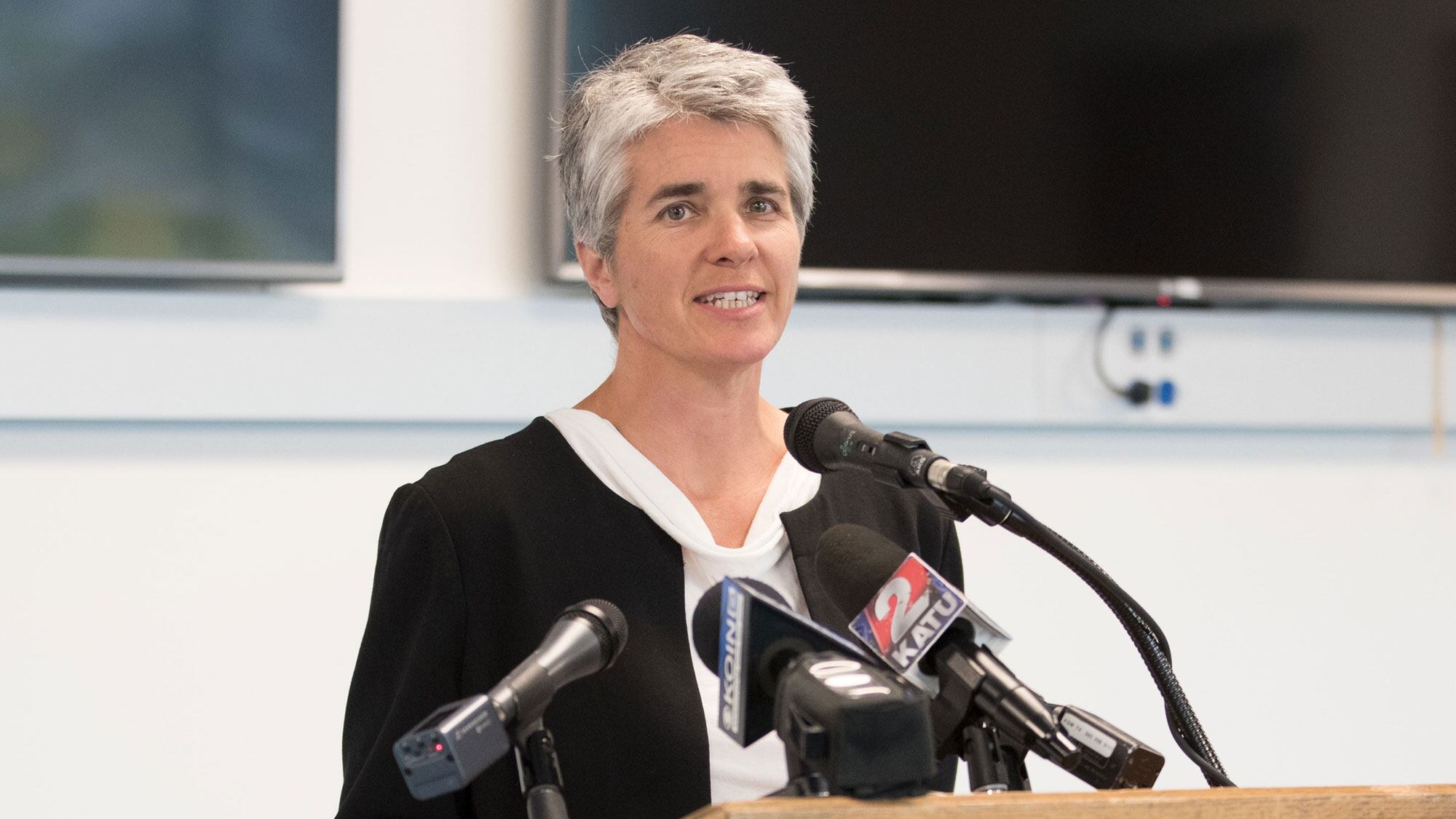HIV is back on the streets of Portland. It's Kim Toevs' job to find out why.
After a five-year decrease in cases, Multnomah County is seeing a spike in HIV. County officials have diagnosed 42 new cases in the past 18 months, nearly half of which affect people who tested negative in the last few years. That's nearly double the 25 cases in 2016 and 2017 combined.
Toevs runs the communicable and sexually transmitted disease program for the Multnomah County Health Department. She believes the HIV cases stem from injectable drugs—for good reason.
In 2018, the health department and the nonprofit Outside In collected roughly 6.6 million used syringes. That's a million more than the year before, and more than twice the amount collected in 2014.
That increase, Toevs thinks, can be largely traced to methamphetamine, which is enjoying a deadly resurgence in Portland and elsewhere. (Oregon's meth-related deaths rose by 400 percent over the past decade, The Oregonian reported.)
Last week, Toevs announced the HIV numbers at a press conference, asking people from all walks of life to get tested. This week, we sat down with her to ask: How did this happen?
WW: How do you know the rise in HIV is related to intravenous drug addiction?
Kim Toevs: We've asked people directly what their drug-use history is, and we've done it for a number of years. That's how we've noticed.
Are there other diseases also being spread right now through needles?
Syphilis is more sexually transmitted, but we're seeing the same exact increases in syphilis, with the same exact folks, as we are with HIV. And then we know that, among folks who inject especially, hepatitis C rates are really high, locally and nationally.
What populations are particularly affected?
We're primarily concerned about people who use methamphetamine, particularly people who inject, and it seems like a good chunk of those folks are homeless, but about half are not. A good portion of those folks are men who have sex with men. But some are not.
What drug use is increasing?
We've had a lot of increase in methamphetamine use in the last couple of years. And we've had a lot of increase in heroin use in the last eight years. You can snort either of them, or smoke them, but eventually, people will start injecting them, and that's when disease transmission happens, because of the blood-sharing. And that's where we get more concerned from a public health perspective.
So we have a lot of folks in our community who, maybe are under the age of 35, have started injecting drugs in probably the last five to eight years, who probably have hepatitis C infections as well.
Why meth?
One piece is the housing crisis. I know that some of the folks that are using drugs are homeless, and for some of them, it's the dysfunctionality that comes with using drugs that led to them losing their housing. But there are a number of folks who become unhoused that are not addicted to any drug, but methamphetamine in particular is a drug that helps people physically feel warm and stay awake at night so they can protect their own personal safety when they're outdoors all night.
What would you say to someone who says the county handing out needles is contributing to the rise of disease?
The idea is that someone would be scared enough of infection from a needle that if they could not get clean syringes, it could actually prevent them from using a drug? [laughs] Science has disproven that for a good 20 years.
What are some of the stigmas and misconceptions around people who test positive for HIV?
If I was in a community that had a high rate of HIV, at this point, I would probably feel safer having condomless sex with someone who had HIV and was on medication and virally suppressed than have sex with someone who said, "Oh yeah, I tested a year ago, don't worry, I know I'm negative." The last negative test is only as good as how many partners you have since your last negative test. I don't think folks have any idea of the risk, but I'm making that [statement] based on science.
I think that a lot of people don't know: If you're on treatment, and you're virally suppressed, you are not transmitting HIV to other people.
Some folks are still using stories that they heard about the old HIV medication. It kept people alive, but it was horrible. So I don't think people know that the medication now is a lot easier to take.
And there are folks who stop their HIV medication and had no idea that we have this great system of care for lower-income folks. Sometimes it's just enough getting the word out to people that we actually have a lot of services available.
Are there any misconceptions about addiction that you think are impacting public health?
I mean like 40? 50? [laughs]
It's really easy for people to get frustrated by these people's behavior, that it's easy to write them off, like: "Those people are selfish," or "Those people are bad," or "There isn't effective treatment," or "Effective treatment only works if you let them bottom out first, so you just have to let their whole life fall apart and get horrible."
We have folks who come to syringe exchanges, and they bring syringes on their bicycles for miles, from everyone in their apartment buildings. And they bring back sharps containers for people if they refer them, and they get clean syringes and other supplies and they redistribute them. They're like real helpers in their community, they have Naloxone so they can save someone's life if someone overdoses, right? And they're also active drug users.
Many of them, I would say, have a level of drug use that I would call addiction, but they are very much caring people.
Will we be seeing more cases of HIV in the coming year?
If we do our jobs right, we will be finding some cases of HIV [contracted] in the past. I am hoping we see [only] a little increase. But I'm also hoping we stop the spread.

